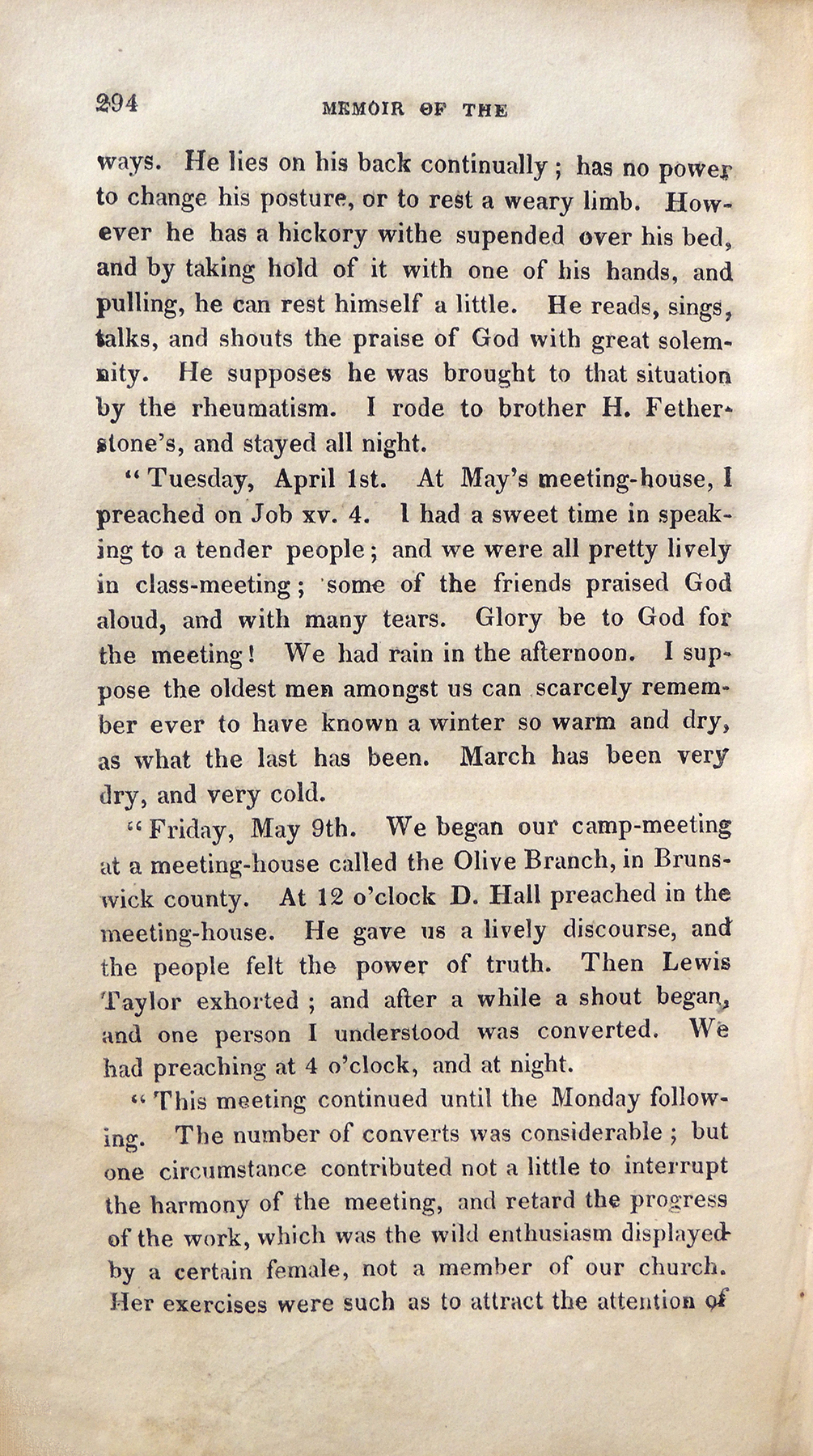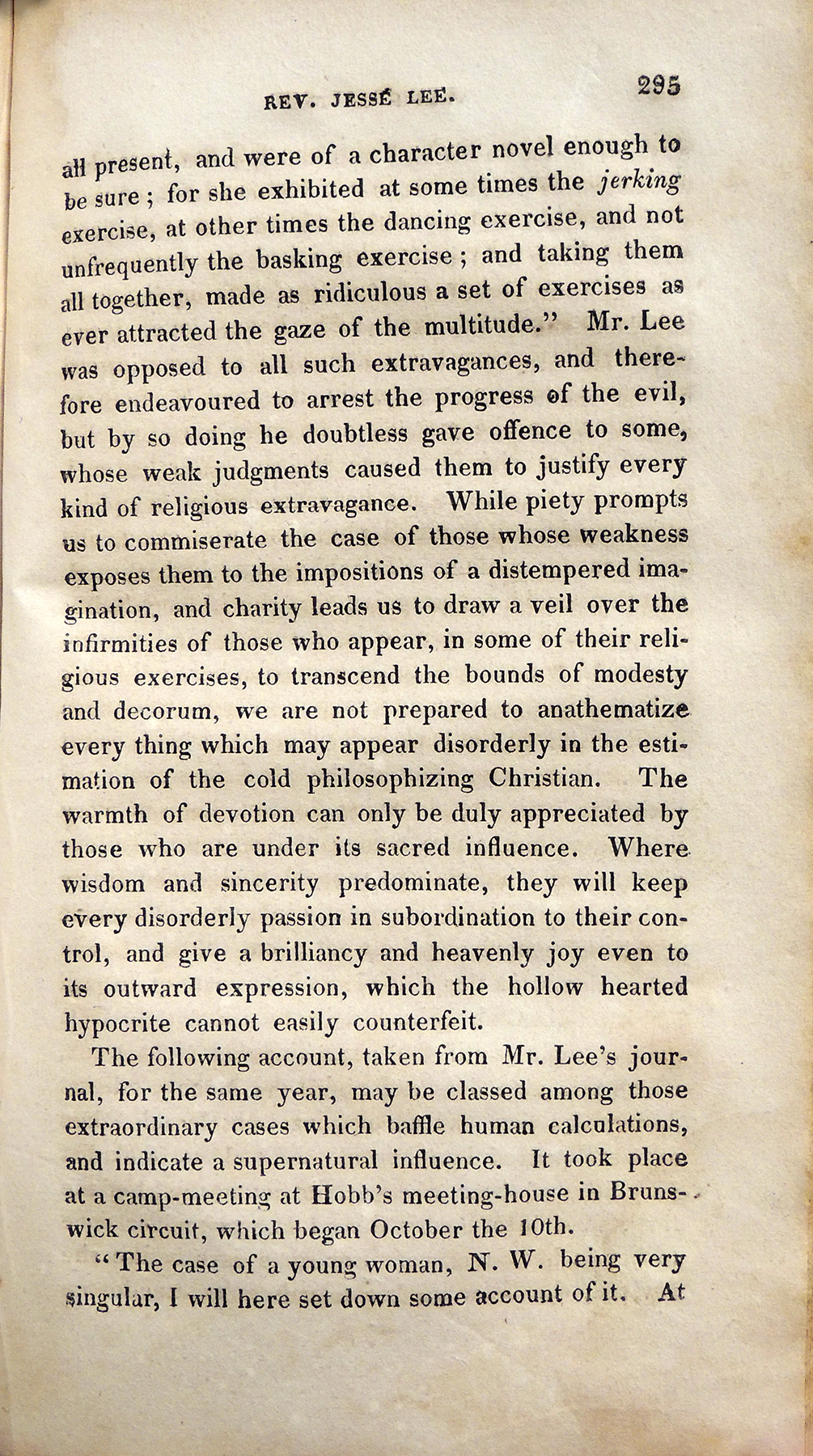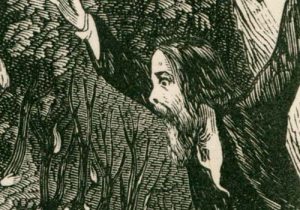In this excerpt from the journals of Jesse Lee (now lost), the popular Methodist circuit rider distanced himself from the “wild enthusiasm” he occasionally encountered among his audiences. Like many of his contemporaries, Lee distinguished the Methodists’ distinctive shout tradition from more extreme forms of somatic agitation such as the jerks. Adapting Lee’s journals for publication two decades later, editor Minton Thrift placed his own interpretive spin on the bodily exercises in the second paragraph. Together, the two voices measure the growing conservatism of Methodist leaders toward the “disorderly” phenomena of the Great Revival. Click here for the full text of Thrift’s Memoir of the Rev. Jesse Lee (1823).
“Friday, May 9th. We began our camp-meeting at a meeting-house called the Olive Branch, in Brunswick county. At 12 o’clock D. Hall preached in the meeting-house. He gave us a lively discourse, and the people felt the power of truth. Then Lewis Taylor exhorted; and after a while a shout began, and one person I understood was converted. We had preaching at 4 o’clock, and at night.
Source
Minton Thrift, Memoir of the Rev. Jesse Lee, with Extracts from His Journals (New York: N. Bangs and T. Mason, 1823), 294–295.
Images courtesy of the American Antiquarian Society, Worcester, Massachusetts.



